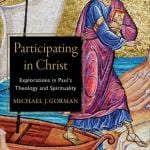In the last few months there’s been two great articles further solidying the cas for an Ephesian provenance for Philippians.
First, M. Eugene Boring, “Philippians and Philemon: Date and Provenance,” CBQ 81.3 (2019): 470-94, which provides even more evidence of an Ephesian origin for these two letters:
Boring arguesthat “praetorium” refers to people rather than a building and the “emperor’s household” refers to all persons under the emperor’s control.
He concludes:
The resurgence of traditional arguments for the Roman provenance of Philippians and Philemon has not made them compelling. Analysis of the narrative world of Philippians and Philemon, and with the pattern of deployment of apostolic title and explicit citation of Scripture absent in all the undisputed letters except 1 Thessalonians, Philippians and Philemon, add significant weight to the current reasons supporting the Ephesian hypothesis.
Then there is Michael Flexsenhar, “The Provenance of Philippians and Why It Matters: Old Questions, New Approaches,” JSNT 42 (2019): 18-45.
This argument is not so much for Ephesus as much as against Rome. He argues that praitorion (Phil 1.13) refers to a civil administrative building not to people; while “Caesar’s household” (4.22) refers to slaves and freedmen in the imperial bureaucracy commonly known as the familia Caesaris.
Part of the problem is that Lightfoot and others accepted the textual variant in Acts 28.16 that Paul was detained by the “prefect of the praetorian guard.” Besides the weak textual evidence for the reading in Acts 28.16 the notion itself is odd since only high-level political foes were under the direct supervision of the prefect not common rabble pandering a new cult.
Anyways, I think the tide against a Roman provenance for Philippians is certainly turning in favour of Ephesus.
Also, at SBL 2019, there was a whole session on this:
S23-147: The Historical Paul
11/23/2019
9:00 AM to 11:30 AM
Room: 11B (Upper Level West) – Convention Center
Theme: Praetorium and Caesar’s Household
This session will revisit Paul’s references in Philippians to the “praetorium” and “Caesar’s household,” examining the literary and epigraphical evidence and considering its implications not only for the location of Paul’s imprisonment but also for describing his place as a social actor in the Roman world.
Ryan Schellenberg, Methodist Theological School in Ohio, Presiding
Michael Flexsenhar III, Rhodes College
Paul the Trojan Horse: The Legacy of Triumph in Philippians (25 min)
Tag(s): Pauline Epistles – Philippians (Biblical Literature – New Testament)
Cédric Brélaz, Université de Fribourg – Universität Freiburg
The Provincial Contexts of Paul’s Imprisonments: Legal Procedure and Social Connectivity in Roman Greece and Asia Minor (25 min)
Tag(s): Pauline Epistles (Biblical Literature – New Testament), Acts (Biblical Literature – New Testament), Greco-Roman Period (History & Culture)
Angela Standhartinger, Philipps-Universität Marburg
Greetings from Prison and Greetings from Caesar’s House (Phil 4:22): A Reconsideration of an Enigmatic Greek Expression in the Light of the Context and Setting of Philippians (25 min)
Tag(s): Pauline Epistles – Philippians (Biblical Literature – New Testament), Roman Empire (History & Culture), Historical Criticism (Interpretive Approaches)
Heike Omerzu, Københavns Universitet
Paul, the Praetorium, and the Saints from Caesar’s Household: Philippians Revisited in Light of Migration Theory (25 min)
Tag(s): Pauline Epistles – Philippians (Biblical Literature – New Testament)
Douglas Campbell, Duke University, Respondent (15 min)












